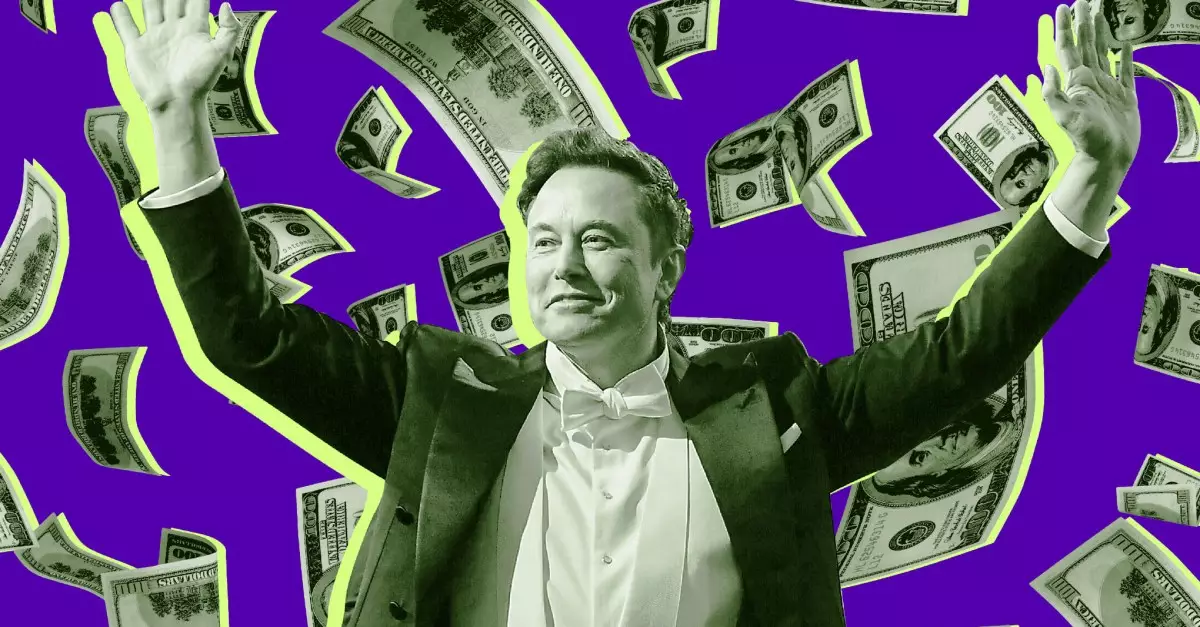In a landscape where innovation thrives amidst fierce competition, a noteworthy rivalry has emerged at the forefront of Silicon Valley’s booming artificial intelligence sector. The recent announcement by Elon Musk regarding his $97.4 billion offer to acquire OpenAI’s nonprofit arm signifies not only a strategic business maneuver but also an ideological clash over the future direction of AI development. Musk, a mastermind known for his ambitious ventures, is rallying an eclectic coalition that includes his own AI company, xAI, alongside influential venture capitalists and personalities from various sectors.
Musk’s coalition comprises notable figures from different industries and investment backgrounds. By teaming up with Valor Equity Partners, Hollywood heavyweight Ari Emanuel, and AI veteran Joe Lonsdale’s venture firm 8VC, Musk is assembling a formidable alliance that conveys both financial strength and strategic insight. Each backer not only adds economic leverage to the bid but also embodies different facets of the evolving tech ecosystem, highlighting a consolidated interest in AI’s trajectory.
This collaborative maneuver is particularly significant at a time when OpenAI’s CEO Sam Altman is navigating a minefield of complex transformations. The company is currently in the throes of converting its nonprofit structure into a for-profit entity, aiming to raise $40 billion at an ambitious valuation of $340 billion while simultaneously embarking on a colossal $500 billion infrastructure project dedicated to advancing AI technology.
Elon Musk’s push to reclaim a stake in OpenAI is fueled, at least in part, by his assertion that the organization has strayed from its foundational principles. Musk, who co-founded OpenAI with Altman in 2015 but left the board in 2019, has criticized the company’s shift towards profit-oriented objectives. He claims that OpenAI’s current operational ethos poses a risk to the original mission of promoting safe and responsible AI development. In his own words, Musk aims to revive OpenAI as “the open-source, safety-focused force for good” that it once was—a mandate that reflects his underlying conviction on the moral responsibilities entwined with AI advancements.
Musk’s aggressive bid introduces additional layers of complication to OpenAI’s ongoing transition to profitability. The commitment from Musk’s consortium to match or surpass any competing offers places CEO Altman in a precarious situation, one in which he must consider not only financial implications but also the broader ethical narrative. As OpenAI engages in delicate negotiations with Microsoft and other stakeholders regarding their stakes in the expected for-profit structure, the pressure intensifies.
In the battleground of AI development, where competing visions collide, the outcomes of this rivalry could have far-reaching implications for the tech industry and society at large. As both Musk and Altman maneuver through this intricate chess game, the stakes remain high—not just for the companies involved, but also for the overarching question of how AI will be shaped and governed in the years to come.

